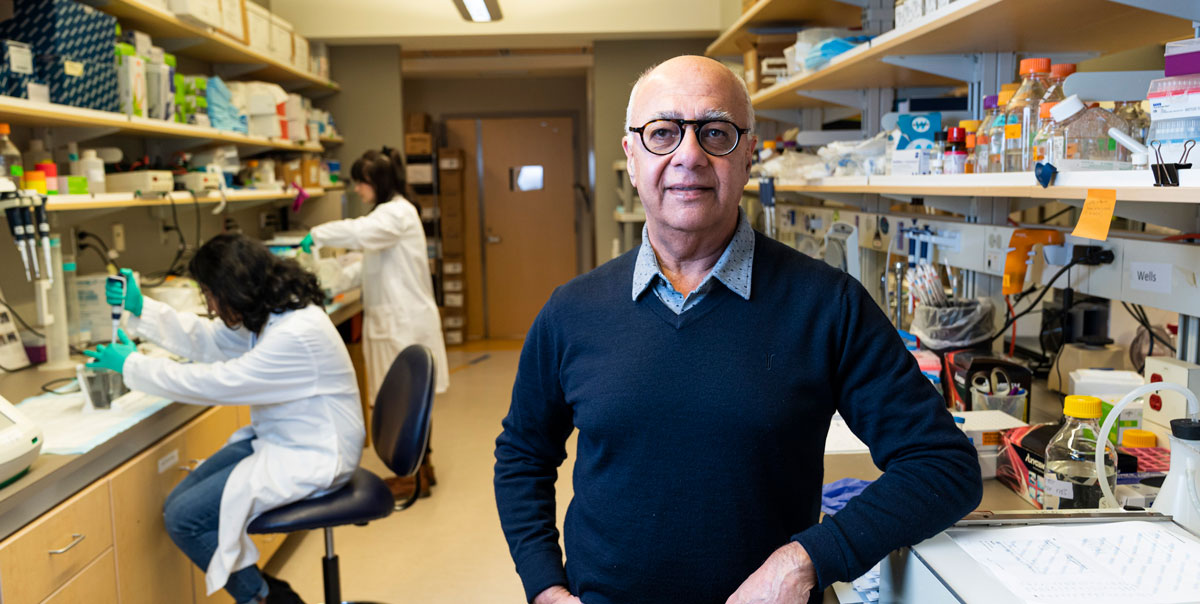
Dr. Shoukat Dedhar
Research by scientists at the University of British Columbia (UBC) and the BC Cancer Research Institute (BCCRI) has uncovered a new combination treatment that may overcome drug resistance in pancreatic cancer, one of the most deadly cancers.
The study, recently published in Cell Reports Medicine, identified a new combination treatment strategy that prevents a type of pancreatic tumour, known as pancreatic ductal adenocarcinoma (PDAC), from adapting to and resisting treatment. PDAC is the most common type of pancreatic cancer.
“This work identifies one approach to overcome adaptive resistance to drugs for pancreatic cancer and demonstrates that the drug combination used can prevent drug resistance at the outset, resulting in longer-term suppression of tumour growth and spread,” said the study’s senior author Dr. Shoukat Dedhar, professor of biochemistry and molecular biology in UBC’s faculty of medicine and distinguished scientist at BCCRI.
Building on an existing understanding that over 95 per cent of PDAC tumours have a mutated gene that causes cancer cells to grow and speed up spread, the research team, co-led by Dedhar, UBC post-doctoral fellow Dr. Wells Brown, and BCRI staff scientist Paul McDonald, dissected the cellular pathways that lead to adaptive resistance.
They identified a combined treatment that prevents the mutated gene from activating enzyme complexes called mTORC1 and mTORC2, which control the ability of the tumour cells to make more proteins for growth and prevent the cells from dying—two key traits that make these tumours so aggressive.
“Pancreatic cancer is one of the most deadly cancers, but we are making progress every day by better understanding how the tumours grow and spread and then preventing them from doing so.”
Dr. Shoukat Dedhar
As the drugs are already available for clinical use with other cancers, this treatment strategy offers a precision medicine approach that can be quickly implemented in clinical trials, offering new hope for patients with PDAC.
“We are looking forward to seeing the results of the clinical trials,” said Dedhar. “Pancreatic cancer is one of the most deadly cancers, but we are making progress every day by better understanding how the tumours grow and spread and then preventing them from doing so.”
This work was supported by grants from the Canadian Cancer Society Research Institute and the Canadian Institutes of Health Research, and funding from Pancreas Centre BC, BC Cancer Foundation, and VGH Foundation.
A version of this story was originally published on the BCCRI website.